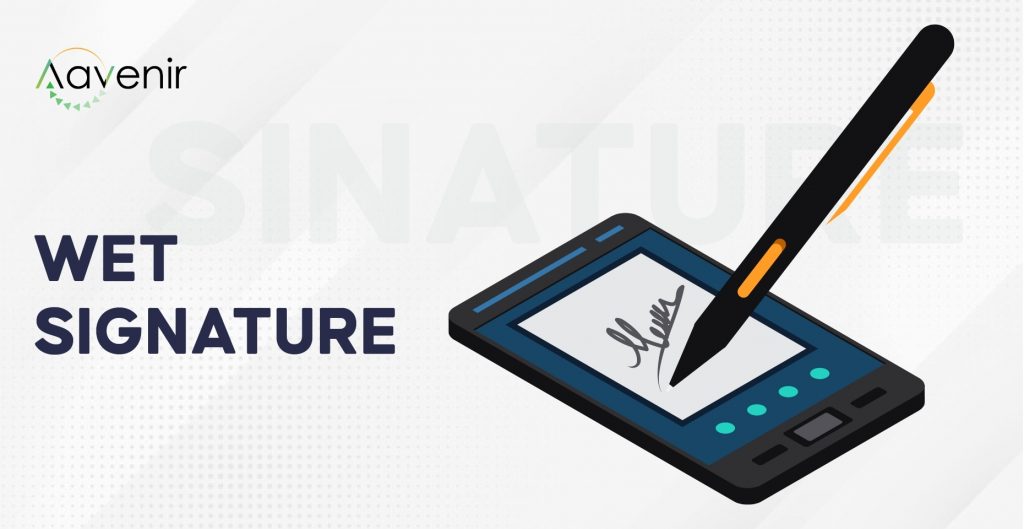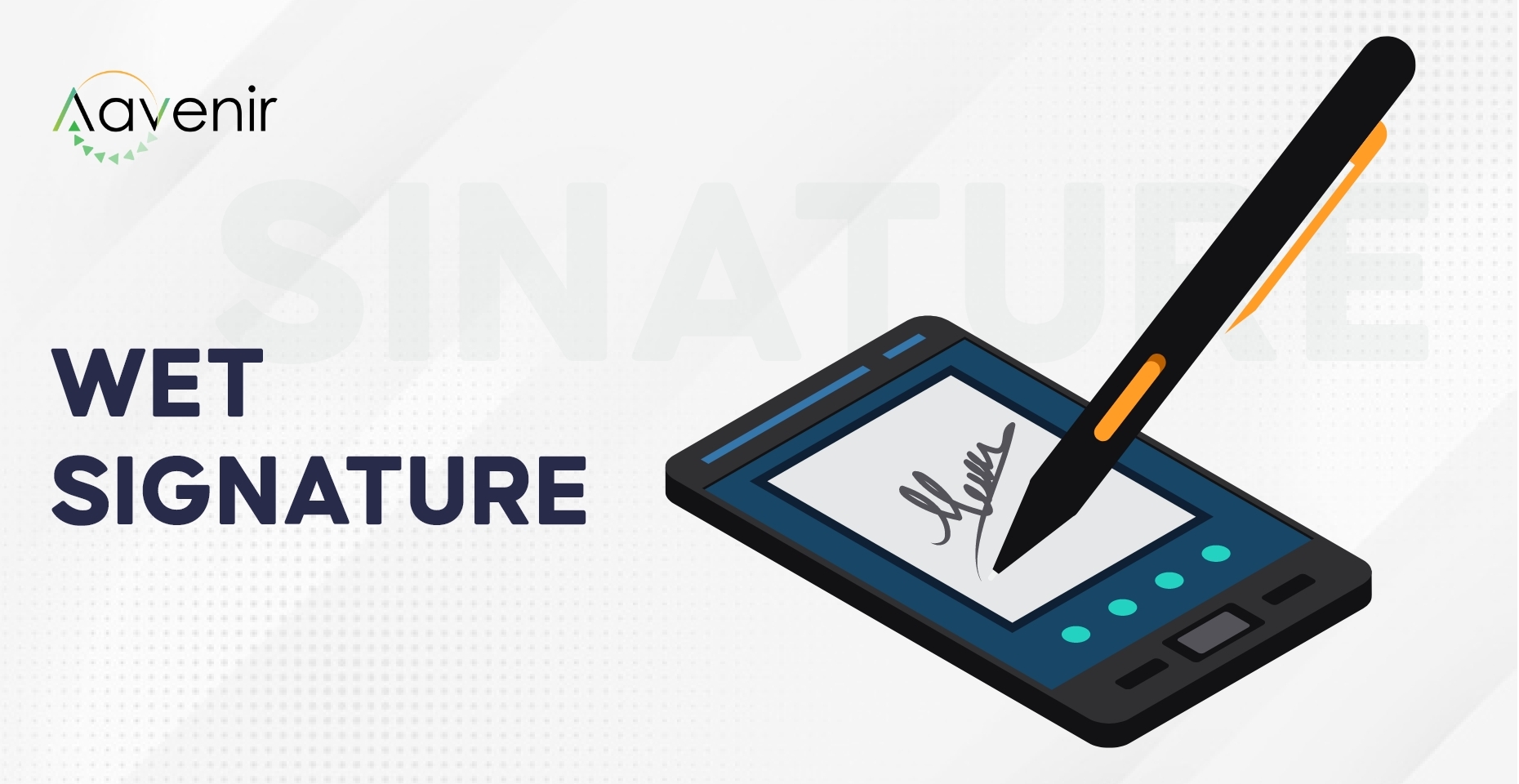What is a Wet Signature?- Definition
When a person signs their name on a physical paper document using a pen or seal, they are said to have endorsed it with a wet signature. A wet signature has been a norm employed by individuals and businesses for hundreds of years to create a legally enforceable contract and avoid fraud.

However, in recent times, Wet Signatures are rarely used to seal contracts and agreements as multiple forms of electronic signatures have taken their place. For instance, contract administration has become considerably streamlined, thanks to the ability to sign a document or give approval electronically. As a result, businesses that depend on wet signatures waste valuable resources and time.
When should you use a wet signature?
There are a few instances where a wet signature is required to make a document legally binding. For example, in the United States, a wet signature may be necessary when a Notary Public verifies the document signer’s identity.
Wet signatures are also necessary for wills, trusts, adoptions, divorce procedures, evictions, court orders, and insurance benefits paperwork.
What are the shortcomings of collecting a wet signature?
- Turnaround time: Electronic signatures help cut a transaction duration by nine days. Electronic papers can be received, examined, signed, and returned on almost any device, 24 hours a day and seven days a week. However, do not forget to add on some buffers as companies, when collecting Wet Signatures, are at the mercy of delivery providers, couriers, business days, and holiday schedules.
- Cost: You must examine more than just the cost of the ink, paper, and overnight delivery service. When it takes more than a week to acquire a signed contract, you must additionally consider the cost of lost revenue. For example, a delay in the arrival of your sales contract could allow a potential client the time to look at other possibilities from your competitors.
- Recipients: Will they be ready to sign your document as soon as they receive it, even if it takes some time? Will they face any difficulties, such as being unable to print the document or failing to reach their courier’s drop-off location before the weekend? They’ll probably enjoy how fast and easy it is to review and sign a document online rather than printing, signing, and mailing it.
- Record keeping and retrieval:
Documents returned to your company with a wet signature must be scanned and filed away. It will take longer to get the physical copy from filing cabinets or storage boxes than to pull it up on your computer if you or the signer needs to refer to it in the future.
Do we still need wet signatures?
Paper-based processes aren’t viable in the long run – they’re slow, expensive, and insecure. In most business transactions, electronic signatures have taken the place of traditional wet ink signatures. For example, switching to electronic signatures might help your organization save time and money by speeding up approvals.
Selecting a system that facilitates contract management when using electronic signatures is critical. Aavenir Contractflow’s Integration with DocuSign makes digital contracts more convenient and safer. We protect your contracts and signatures from manipulation so you can focus on running your business.
Have any questions? Get in touch with the experts.
Explore Additional Resources To Know More




